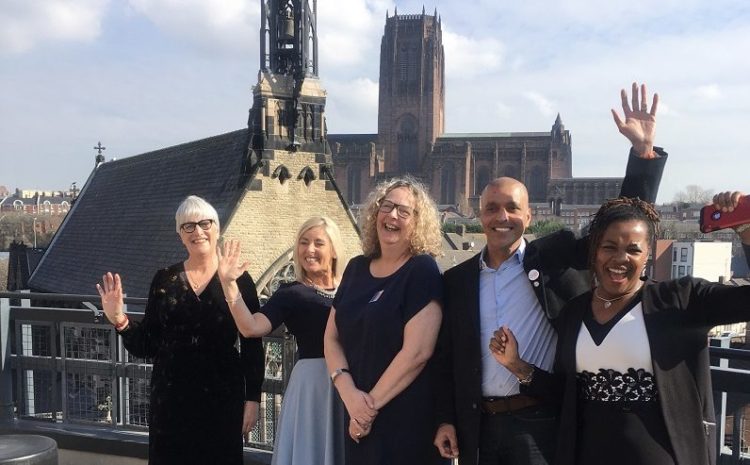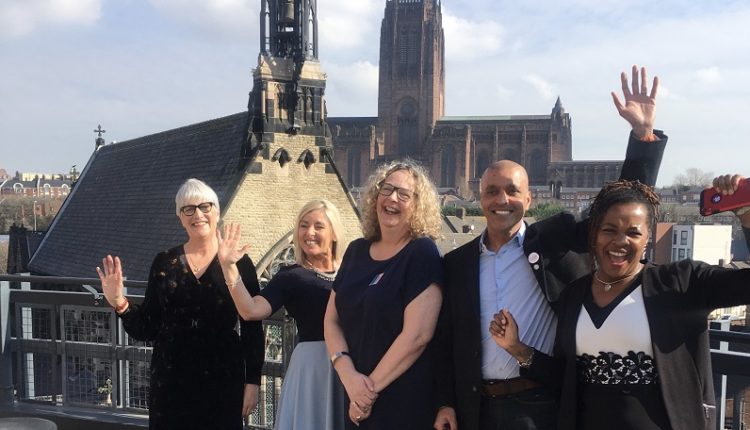‘Change-makers’ who are looking to level the gender playing field
The Women’s Organisation in Liverpool hosts Be The Change event for 130-plus audience, supported by NatWest and Northern Power Women

More than 130 women from across the Liverpool city region attended a ‘change-makers’ panel event to discuss the practical steps that could be taken to level the gender playing field.
Be The Change was held to coincide with International Women’s Day and was a collaboration between The Women’s Organisation, NatWest and Northern Power Women. It was held at The Women’s Organisation headquarters in Liverpool.
On the panel was Sara Rowbotham, Rob Mukherjee, Irene Afful and Dr Paula Burkinshaw, who focused on “going beyond” PR stunts and publicity and bring about real change that would transform women’s lives.
Sara Rowbotham is a former frontline NHS worker, who played a huge part in exposing the Rochdale grooming scandal; her experiences were portrayed by Maxine Peake in the BBC drama, Three Girls.
Since being made redundant in 2014, after she reported that scores of complaints had been ignored by her bosses, Rowbotham is now Deputy Leader for Health & Wellbeing at Rochdale Council.
READ MORE: Female entrepreneurs could add £230m to the city region economy
Director of Transformation at EveryCloud, Rob Mukherjee has won numerous awards for his work, including the Northern Power Women ‘Agent of Change’. A key voice on diversity and inclusion, Mr Mukherjee is currently listed in the EMpower Top 100 Ethnic Minority Executives, and the HERoes Top 40 Advocates of Women in Business.
Irene Afful served 25 years in Merseyside Police, overcoming race and gender barriers to become the first ever black female inspector in the history of the force. She mentored and coached other minority staff for development, and was instrumental in increasing recruitment of BME, female and other minority groups to the force.
Since then, she has founded Ametrine Enterprise Solutions, where she pursues her passion for diversity and inclusion by supporting businesses via consultancy services.
Dr Paula Burkinshaw is a leading voice on gender and leadership. As Senior Research Fellow at the University of Leeds Business School, her research with women in middle and senior management covers a wide range of sectors, and delves into the enablers and barriers to women’s leadership careers. Dr Burkinshaw’s key message puts an emphasis on ‘fixing’ organisational structures.
The discussion started out looking at equal pay and women in the workplace, in light of several high-profile equal pay cases against companies such as the BBC.
Rob Mukherjee touched on how companies need to drop the pretence surrounding International Women’s Day, and make actual steps towards closing the gender pay gap. He saiid: “Employers are too quick to accept a gender pay gap, rather than tackling it. We need balance at every level for diversity of opinion.’
Dr Burkinshaw noted that there has been a shift in opinion in recent years, with women now identifying organisational culture as the problem, rather than themselves. She explained: ‘There’s been a big mindset shift: before, it was, ‘how do we fix women to fit in?’. Now we know that that attitude is damaging to both women and men. Diverse leadership is better for everyone.”
As a woman in politics, Sara Rowbotham addressed the topic of women in the media gaze, especially following ‘Shouldergate’, where Tracy Brabin MP was vilified on social media for what she was wearing in Parliament. She said: “It’s basically saying that to be taken seriously as a woman, you need to be modest, and be feminine – but not too feminine.”
With a huge amount of collective experience in leadership between them, the panel was asked what they believe the key steps are to seeing equal representation at leadership level, and what the main enablers are in achieving this.
Irene Afful drew on her experience in the police force, saying that companies need concrete targets rather than guidelines to increase diversity. She added: “As soon as diversity was measured, it began to increase. We have to introduce targets, testing the climate of the organisation and putting forward changes, for anything to change.”
Chief executive and co-founder of The Women’s Organisation, Maggie O’Carroll, said: “International Women’s Day is always a highlight in our calendar. While we celebrate women all year round, this day gives us an opportunity to recognise our achievements as women, but also look at how much further we have to go to achieve true gender equality.
“This event brought together inspiring change-makers from around the North, sharing their stories and expertise with the women in our network. We’re all coming away today feeling ready to drive equality with every action we take and word we speak, and to be the change we want to see.”

